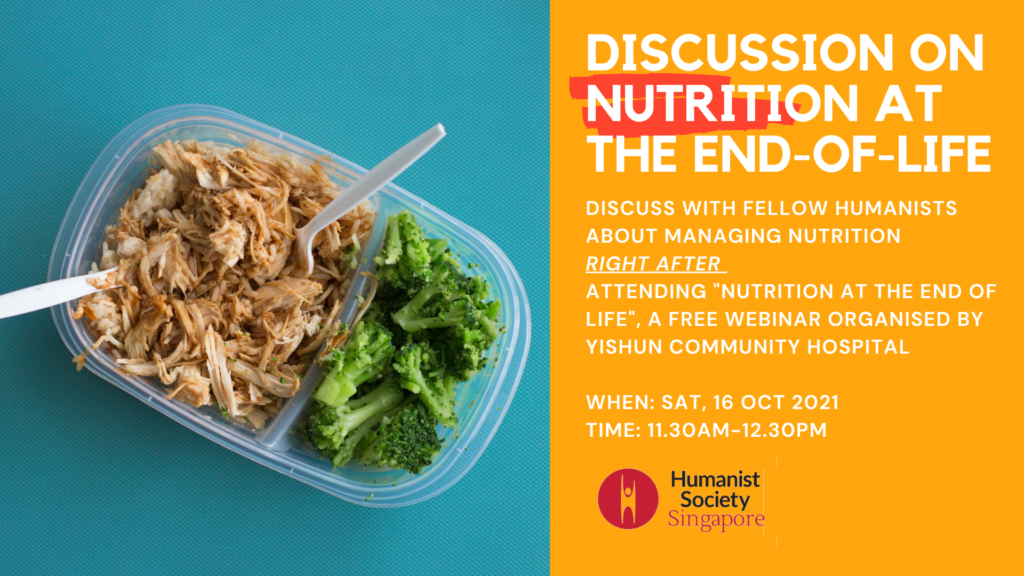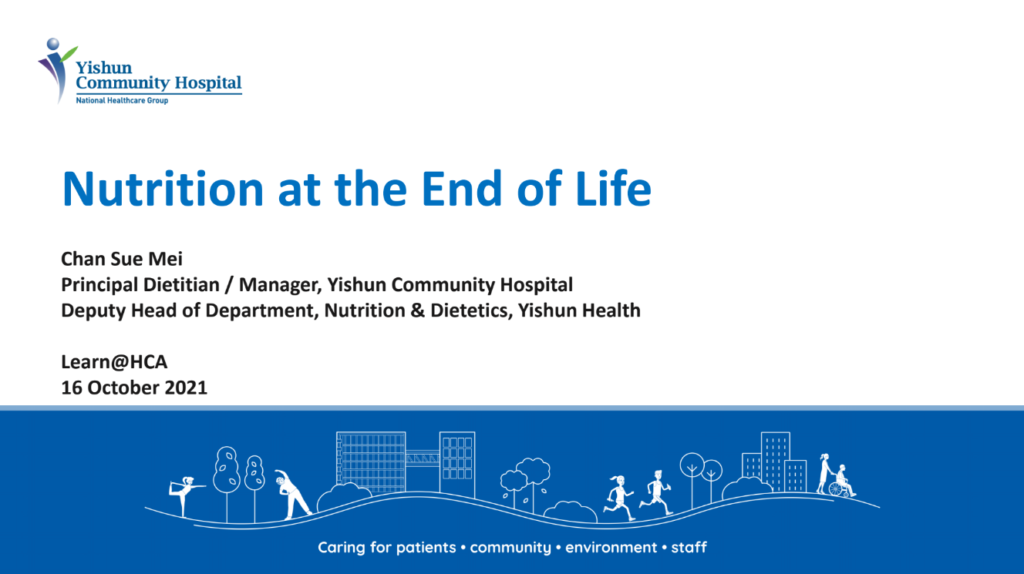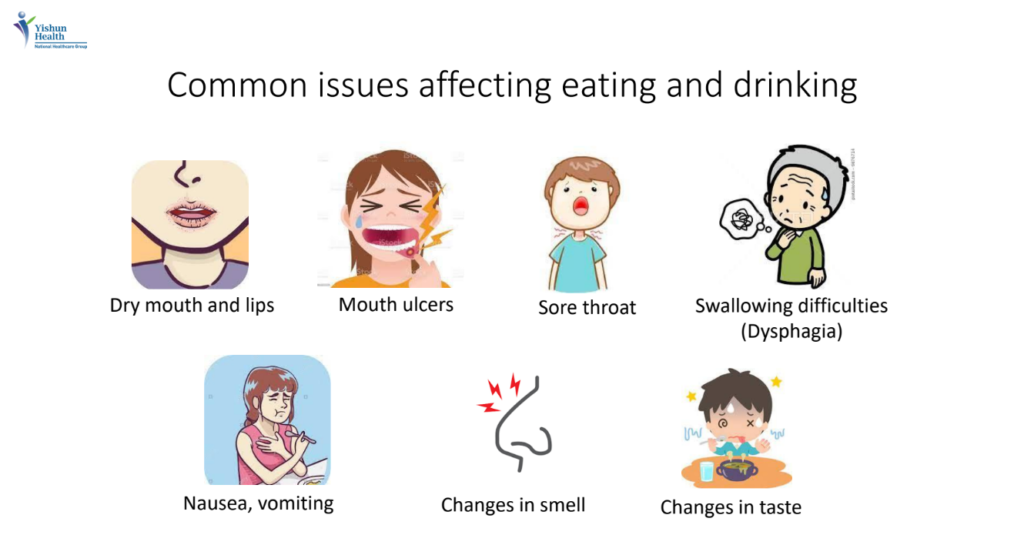
Nutrition is fundamental to all life. Never more so than at the end of life when illness may add new challenges to understanding nutritional needs.
On 16 Oct 2021, the HSS Palliative Care Working Group organised an “online outing” to an free webinar delivered by the HCA Hospice Care (HCA). It was followed by HSS’ own post-event discussion. All activities were held online due to Covid-19 restrictions.
HCA is Singapore’s largest home hospice care provider and has been a registered charity since 1989. The organisation provides comfort and support to patients with life-limiting illnesses regardless of age, religion, ethnicity, nationality and financial status.
This webinar, titled “Nutrition at the End of Life”, covered these topics:

- Changes in a person’s appetite and nutrition across the trajectory of illness and at the end-of-life
- Finding a balance between maintaining nutrition and understanding anorexia at the end-of-life
- Types of nutritional supplements and their usage
For more info, the slides can be downloaded here.
The webinar was very informative and detailed on the issue of nutrition for people without any background in caring for end stage patients. The webinar touched upon the problems which could make food/drink a challenge for those in the end stages of life and for their caregivers.
“My big takeaway is that being a caregiver to a loved one who is dying is a very tough situation,” said Seetha, the volunteer of this HSS outing. “I knew this abstractly before attending this webinar, but listening to the challenges in detail, I can really appreciate how difficult it is.”

Post-event discussion
At the post-event discussion, our Secretary Nora, with her experience as a former nurse, shared how frustrating it can be to a caregiver to go to great lengths cooking/buying specific foods/drinks that their loved one may crave, only to see them eat a spoonful and waste the rest.
Something the webinar presenter and Nora pointed out is the need to prioritize time spent with the loved one above preparing special dishes in the kitchen. So, caregivers should keep dishes simple and easy to prepare.
Participants also discussed how to take the HSS Palliative Care Working Group forward. Some ideas are:
- Start a caregiver support group to help caregivers cope with the challenges of providing care to a loved one at the end stage of life.
- Start a support group, but focus on HSS own members who are going through such situations – whether as a patient at the end stage or a caregiver.
- Continue to publicize similar webinars or other events on our website, even if we don’t host a post-event discussion, so we keep our members informed of what’s happening and keep the interest up in our Working Group’s focus.
In the process, we do need to be cognizant of manpower constraints. There can be collaboration with palliative care organizations to see how we can contribute to non-religious patients and caregivers.




